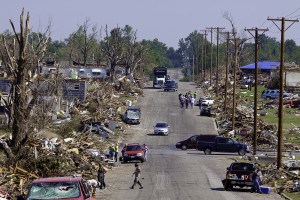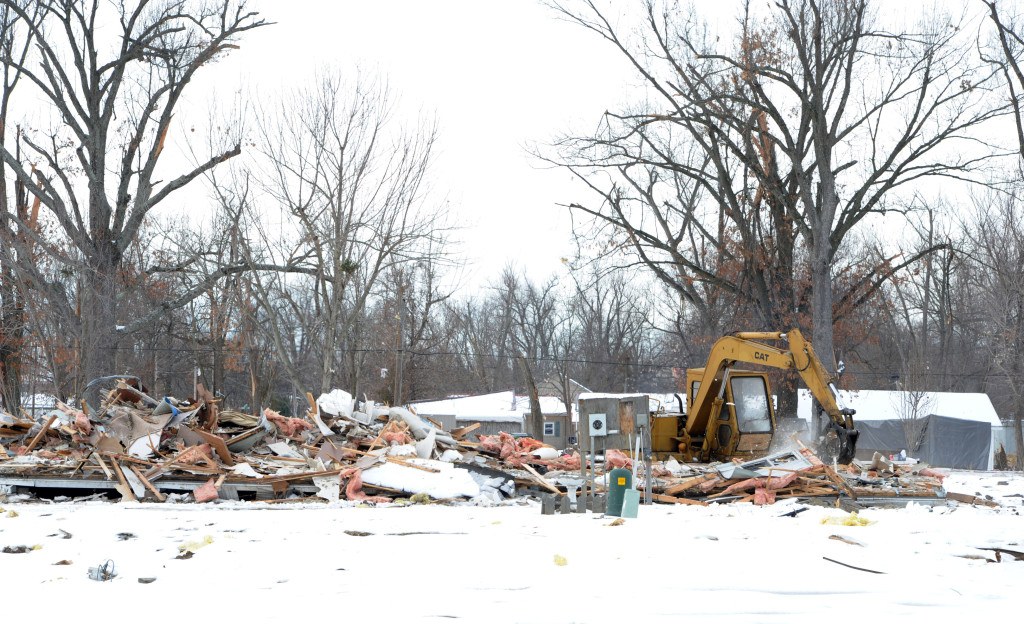Cleanup and restoration crews are used to the unexpected. One day, a crew could be repairing mold damage to a house. The next day, it could be at a homicide.
Crews deal with residue of all kinds from fire, water, mold and hazardous materials. Crews show up after a fire department extinguishes flames, after homicide detectives comb through a crime scene and after a storm barrels through the city.
They clean it up.

At Servpro, one of the Peninsula’s many cleanup and restoration companies, the business’ slogan is painted on the bright green walls at its Newport News office: “Like it never even happened.”
Jason Riker, operations manager for Servpro, would know. His team of 15 is hired by insurance companies and occasionally individuals.
As soon as he gets the call, Riker gets an idea of the environment he’s about to enter. If it’s a gunshot wound, he prepares to deal with splatter. If it’s a head wound, there’s brain tissue. A stabbing means blood from puncture wounds.
“You get an idea in your head, prepping going into it,” he said.
But that’s sometimes the only warning they get. Someone – a homeowner or an insurance company – will call to report damage, like from water or mold, but ask that Riker and his crew wait until later to come out. Sometimes the crew only has time to grab equipment before it’s on its way.
The removal of bodies from crime scenes fall to different entities. The city of Newport News contracts with Suburban and Seven Rivers Removal and Transport Services Inc. in Hampton to remove bodies, according to city documents.
“You just take a deep breath, put a suit on and go ahead and get it over,” said Shane Price, president of Price Removal, a company that contracted until this February with the city of Newport News to remove bodies.
He tells his crew of 10, six of whom are retired officers, to get the job done in one trip. Price Removal contracts with several other Hampton Roads cities and picks up about 100 bodies over three or four months, Price said.
Ask anyone in the cleanup and restoration industry: There aren’t words that describe the smell of death.
Riker says he remembers the first time he smelled it: New Year’s Day, years ago. He was cleaning up a Hampton Roads house where a man had shot himself.
It was a smell “so putrid it made you want to gag,” Riker said.
Cleanup and restoration professionals say a big variable is what you don’t see.
“A misconception is, ‘Hey, if I just see blood, all you have to do is clean that,”‘ said Tina Bao, senior vice president for marketing and sales at Aftermath, a company that also services the region.
Perhaps the most mercurial factor is the customer.
“People’s lives are interrupted,” Riker said. “That’s the worst part.”
At Aftermath, employees go through regular training to learn how to work with victims. They’re reminded to avoid certain expressions – “shooting someone an email” is a no-go, Bao said. Empathy tops the list of qualities the company seeks in applicants.
“We can always teach them technical aspects of what we do, but you can’t teach that compassion,” she said.
For Riker, the hardest part is explaining the job to his clients.
He remembers talking to a woman whose husband shot himself after discovering his cancer had recurred. He remembers her yelling.
“What’re you doing? Why are you stealing my mattress?” he said she screamed at him. “My husband’s going to be home. He’s going to need somewhere to sleep.”
In situations like those, Riker says he does his best to explain the process as gracefully as possible. Sometimes, he said, he breaks and gets choked up. When he leaves a scene, he said he prays.
“How would you treat your family?” Riker said. “How would you want to be treated?”
That kind of response is called vicarious traumatization, says Michelle Lange, a clinical psychologist in Newport News. A person could experience traumatic stress symptoms without having been through the trauma firsthand.
“I might start experiencing some of those same traumatic symptoms, which is an impact on mood … or just negative views of the world or humanity,” Lange said.
For Riker, it’s a matter of separating himself. But every so often, it hits home.
“What would you do if that was your grandmother?” he said. He said he’s exposed to the most gruesome, intimate details in a person’s life. For many customers, this is the worst day of their life.
“You really have to desensitize,” Riker said. “Not close off but just take a step back.”
That could be a good thing, Lange said. But the more a person’s exposed to trauma, the more likely it is a person might become numb. Repeated exposure to something might normalize it.
“That is a protective factor because it allows the person to do their job. It causes more good than harm for them in their line of work, but in their personal life, it could cause problems,” she said.
Riker says the people who suffer are his employees’ families, whom they rarely see. During Hurricane Matthew, his crews pulled 20-hour workdays for several weeks.
“It probably cost my first marriage, and there’s probably other guys that would say the same thing,” Riker said.
But he loves his job. He doesn’t flinch when he talks about blood or the things he’s encountered throughout 18 years in the industry. He wishes it were as easy as it’s portrayed in “Sunshine Cleaning” – a quippy 2008 indie flick in which a woman starts a cleanup and restoration business with her sister to send her young son to private school. The women handle messes with a humorous approach.
Cleanup and restoration means getting to the root of a problem to find the damage. Employees are required to go through hours of training, and the companies adhere to guidelines to dispose of biohazards.
“There’s a need for the work,” said Price, who’s been in the funeral industry for 42 years.
If something’s been decomposing for days, crews need to get into the structure of a house and identify where fluids have leaked. Riker’s torn down walls, thrown out computer monitors and pulled up a floor-full of carpeting – just to get rid of damage.
But someone has to do it.
“You just gotta know that you’re helping people,” he said.
Was this article valuable?
Here are more articles you may enjoy.


 Berkshire Utility Presses Wildfire Appeal With Billions at Stake
Berkshire Utility Presses Wildfire Appeal With Billions at Stake  One out of 10 Cars Sold in Europe Is Now Made by a Chinese Brand
One out of 10 Cars Sold in Europe Is Now Made by a Chinese Brand  UBS Top Executives to Appear at Senate Hearing on Credit Suisse Nazi Accounts
UBS Top Executives to Appear at Senate Hearing on Credit Suisse Nazi Accounts  Portugal Rolls Out $2.9 Billion Aid as Deadly Flooding Spreads
Portugal Rolls Out $2.9 Billion Aid as Deadly Flooding Spreads 